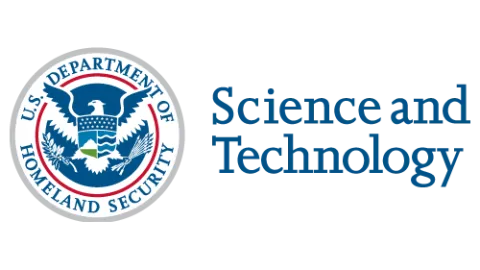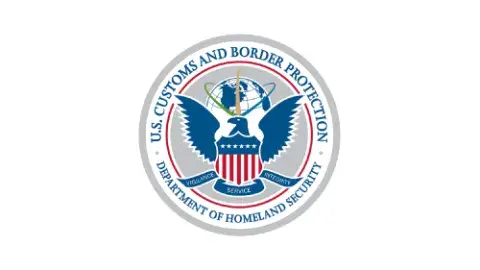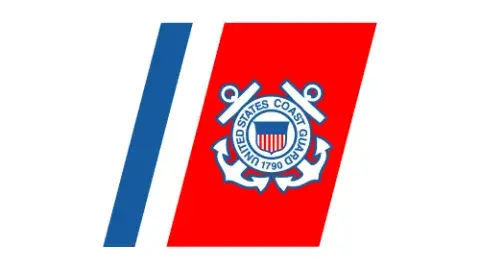The Department of Homeland Security (DHS) Supply Chain Resilience Center (SCRC) leverages DHS programs and authorities to enhance the resilience of supply chains which are crucial for homeland security. It serves as a hub where industry and government come together to address supply chains that support the reliable functioning of critical infrastructure that provide essential services to the American people every day. The SCRC relies on integrated supply chain analysis to anticipate, monitor, and respond to supply chain risks and identify approaches to mitigate risks that enhance availability and integrity of critical supplies and health of related supply chains.
Updates
DHS Supply Chain News
-
Supply Chain Exercise with Canada
Image
-
MOU Signing with Australia and the UK
Image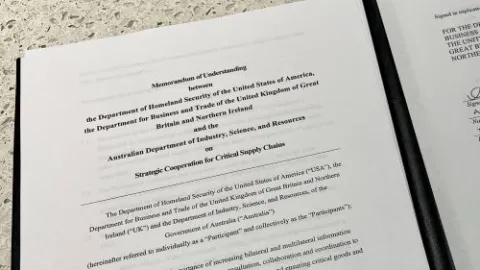
-
USCG, Navy, DHS Testify
Image
-
DHS Moves to Improve Supply Chain Resilience
Image
-
Executive Order Expands Coast Guard Authorities
Image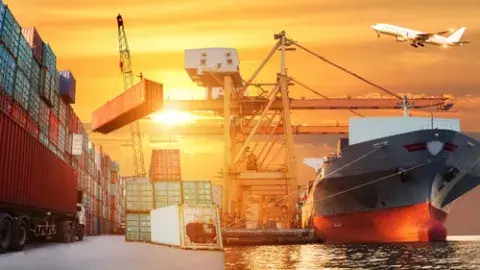
-
DHS’ 2025 Homeland Threat Assessment
Image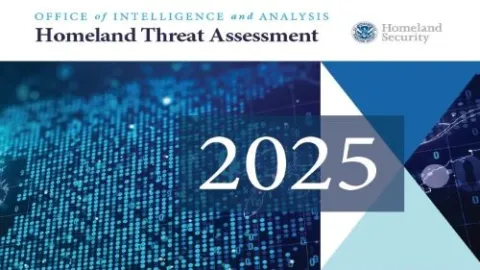
-
Remarks at a Supply Chain Roundtable
Image
On February 24, 2021, The White House issued Executive Order (E.O) 14017 on America's Supply Chains, which directed a whole-of-government approach to reviewing risks in, and strengthening the resilience of, supply chains supporting industries that are critical to U.S. economic prosperity and national security.
The SCRC was developed in response to a recommendation from the Homeland Security Advisory Council (HSAC) to establish an entity to address critical supply chain vulnerabilities and disruptions that impact the U.S. economy, the livelihood of American citizens, and the protection of critical infrastructure.
Learn more about the SCRC:
Real-time Monitoring and Analysis
The SCRC is monitoring and providing analysis on impending and real-time supply chain disruptions. These include events such as impending labor strikes, droughts, and the collapse of the Baltimore Key Bridge.
Port Security
The SCRC is evaluating the risks to U.S. port infrastructure posed by adversarial nation state threats and the potential overreliance on untrustworthy equipment and vendors that are subject to nation-state control. The SCRC has assessed the market for ship-to-shore port cranes to identify trusted vendors, collaborated with DHS components on cybersecurity best practices, and contributed to the White House's February 2024 announcement detailing plans for the revitalization of U.S. ship-to-shore crane manufacturing.
The SCRC has also been evaluating the risks related to the widespread global adoption of the People’s Republic of China (PRC) National Transportation and Logistics Public Information Platform (LOGINK). The SCRC is leading an effort across DHS Components and with the White House to develop mitigations that U.S. Government agencies, international partners, and private sector stakeholders can utilize to reduce risk in this critical economic security space.
International Partnerships and Engagement
The SCRC developed a Memorandum of Understanding (MOU) on “Strategic Cooperation for Critical Supply Chains” with counterparts from Australia and the United Kingdom (UK). The MOU establishes a trilateral Supply Chain Resilience Cooperation Group and sets the foundation for future information-sharing initiatives where we’ll exchange insights on current/emerging risks mitigation strategies, compare notes on our respective analytic capabilities to assess the health of critical supply chains, and conduct stress-testing exercises.
Artificial Intelligence (AI)
The SCRC is partnering with DHS AI Corps to develop a tool that can break down critical product supply chains into component parts and materials, make real-time forecasts of the impact to the global supply chain of real or hypothesized black swan events, and recommend courses of action to alleviate impacts.
Related Departmental Supply Chain Efforts
Contact Us
For questions or comments, email dhsscrc@hq.dhs.gov




